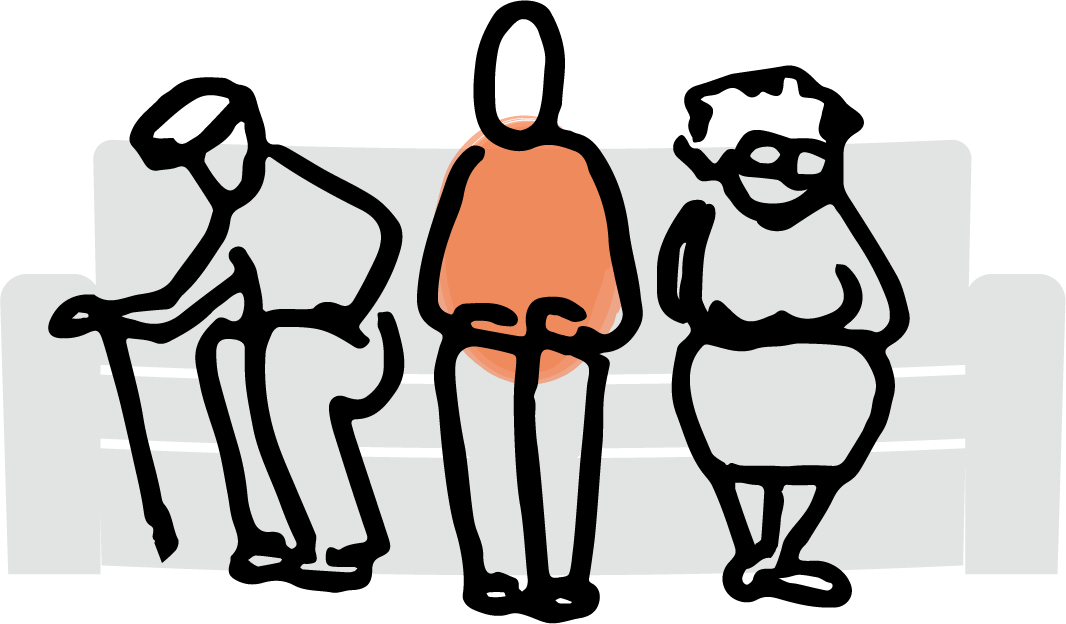The Only Way Out Is Through
Three Things with Linda Wattier
“What three things have you learned about helping older parents that you wish you had known earlier?”
That’s the question I’ve been asking aging experts and caregivers. And today I’m sharing their answers in a new series called “Three Things.”
Today’s advice comes from wellbeing coach Linda Wattier, who has written about her caregiving challenges in How She Thrives, a free email newsletter for women over 50.
Here, in her own words, are three things Linda wants you to know:
1. You can’t help someone until they are ready to accept help.
Neither of my parents recognized that they needed help. And they resisted it. Even in assisted living, they resisted help from aids beyond basic housekeeping. They insisted they were fine on their own, even though it became obvious things weren’t fine.
My father began calling my brother all the time with problems, like operating the TV or the dishwasher. And we began to worry they weren’t taking their meds on a regular basis.
We wanted to have aides in the apartment with them for at least a few hours a day. But they didn’t see the need.
It was tearing my heart out. I had to do something. So I flew out to convince them to accept more help. I thought, if I just go out there and surround them in love, they will see reason and at least be willing to try.
And as soon as I got there, I realized it was a waste of time. They just refused everything.
It was very upsetting. This was a long trip. At least 15 hours door-to-door. And what did I accomplish besides exhausting myself again? Not much.
That’s a lesson I’ll never forget: don’t think you’re going to be the hero and bust into your parents’ lives and fix everything. You can’t help someone until they are ready to accept help.
2. The only way out is through.
We all want what’s best for our parents. But you only have so much influence over what they do.
What needs to happen is you need to accept where they are. Allow them to be where they are and let go. Because torturing yourself emotionally doesn’t help — and it doesn’t change anything.
Stop resisting reality and start getting comfortable with not knowing what’s going to happen next.
When I’m having a hard time accepting something, or there’s uncertainty and I feel like I should know what to do, or when I notice myself thinking, thinking, thinking to solve problems, it’s a sign that I’m stuck in my head. So I need to get out of my head and into my heart.
To do that, I spend time in solitude, I get quiet, I look within, and I ask for help. For me, the heart is where wisdom is. It’s where intuition is. That’s how I become fully present. I see what’s in front of me, right here, right now, and I accept the truth of it.
There’s no magic formula. The only way out is through. But it gets easier when you stop fighting what is.
3. Look for little bits of light.
I was prepared to have empathy and to care and to help. But I was not prepared for the fear that I felt.
I was full of fear when I looked at my parents. I was fearful of whether my DNA was going to take me on the same journey because they’ve been through so much.
Also, I wasn’t prepared for the extent of their suffering.
I’m a positive person, but this stuff is hard. And it’s easy to get lost in dark thoughts: “Oh my God, is this really my life now?”
How do you keep going? You have to care for your emotional and spiritual fitness.
Look for little bits of light that bring joy — the small, simple things that open your heart, soothe your soul, and help you find your way when things feel dark.
I get my little bits of light in different ways, like creative projects, sunrise walks by the lake, or making meaningful connections with loved ones.
It also helps to remember that you are not your thoughts. Thoughts are fleeting — and so are the emotions they create. “This too shall pass” sounds cliché, but it’s true. Everything is always changing.
So don’t catastrophize. Forgive yourself for the mistakes you’ve made and the mistakes you will make. You’re doing your best — and what you’re doing for your parents is good.
For More:
- How She Thrives is a free email newsletter with advice on self-awareness, emotional and spiritual fitness, and life design for women over 50.
Thanks for caring,

New to My Aging Parents?
Join us for practical tips and strategies to help you meet the challenges of helping your aging parents. Hand picked and delivered by email biweekly.
No charge. No spam. Unsubscribe anytime.
